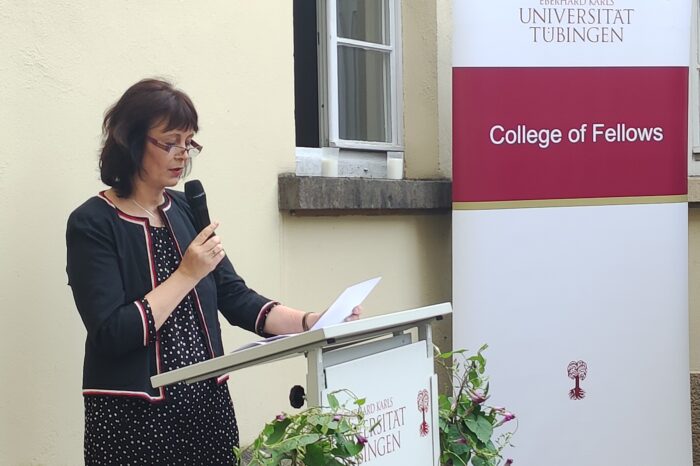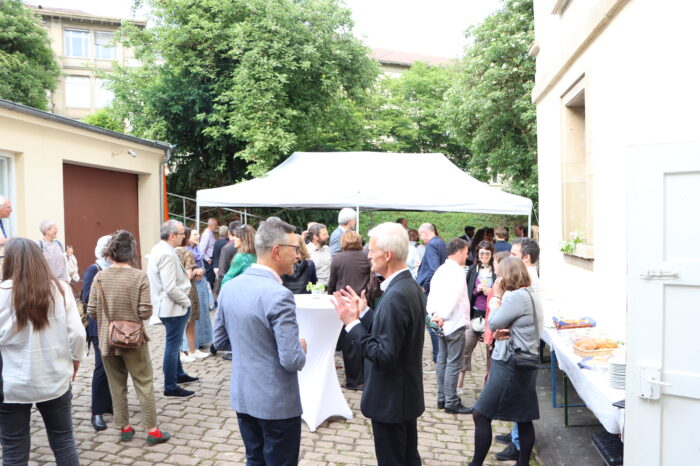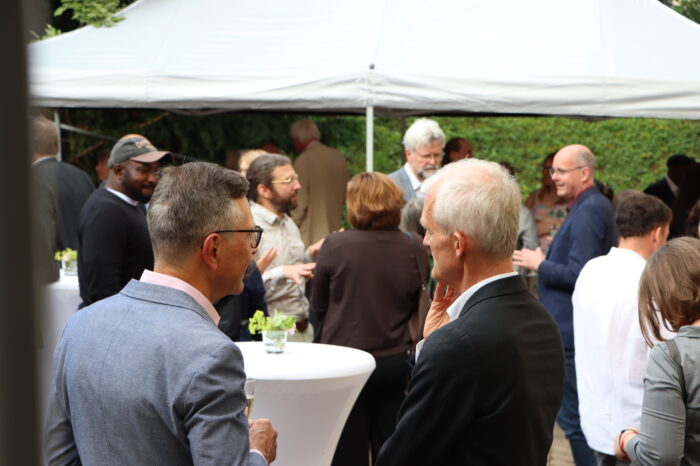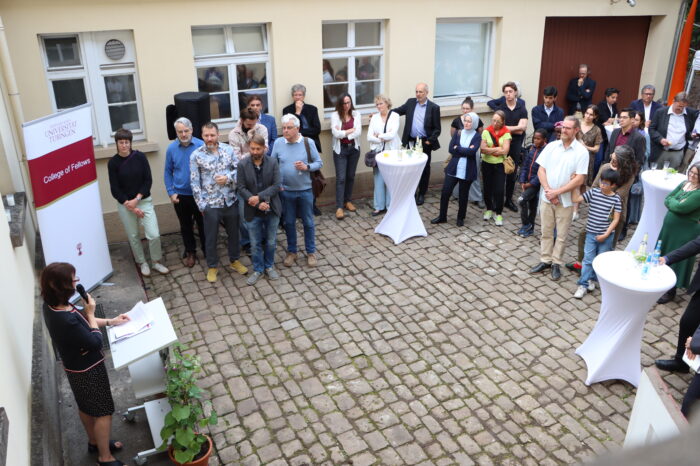Professor Valentina Sandu-Dediu, Member of the International Advisory Board of the College of Fellows at University of Tübingen
10 July 2025
Professor Valentina Sandu-Dediu, Rector of New Europe College, has been recently appointed as a member of the International Advisory Board of the College of Fellows at University of Tübingen.
The College of Fellows is the Tübingen model for a university-based Institute for Advanced Studies (IAS). It was officially inaugurated in April 2022 as a central institution of the University of Tübingen within the framework of the Excellence Strategy of the German federal and state governments.
On the occasion of her appointment, professor Valentina Sandu-Dediu shared some reflections on the role of the Institutes for Advanced Studies:
Interdisciplinarity as harmony and polyphony
My first contact with the environment of an institute of advanced study was as a fellow of New Europe College (NEC) in Bucharest in 1996-1997. That academic year had profound implications on my mindset as a musicologist and teacher. The models I admired here, the perspective of scientific research that involves communication, confrontation and the verification of ideas by debating them with peers from fields that are sometimes very different from your own, and therefore the need to make yourself understood in an interdisciplinary milieu are some of my personal gains. Since becoming rector in 2014, I have sought to continue the dialogic style shaped by NEC’s founder, the writer Andrei Pleșu, with deference and politeness towards the interlocutor, but also with necessary touches of spontaneity and humour. For profound and innovative research must be presented in an attractive way, so that the essence of the dialogue between researchers remains the same: a musicologist should not find political theory dry, and an economist should be able to discover new perspectives by observing the project of a visual artist.
I extended this fellowship experience at the Wissenschaftskolleg zu Berlin in 2000, and in Durham in 2024: the months I spent there are among the happiest of my academic career. I say this primarily in gratitude for the respite offered to reflect on my own research in an exceptional environment.
I believe that musical metaphors of harmony and polyphony are appropriate for the interdisciplinary nature of an institute of advanced studies: bringing together polyphonic lines in harmony or turning invention into a chorale. As a musicologist, I learned that interdisciplinarity is essential: you cannot analyse a score, you cannot construct the narrative without using methodological tools from other disciplines. I often look at the concepts that historians, anthropologists, philosophers, literary critics or art historians work with. There is, however, manifestly interdisciplinary musicological research investigating the bridges between music and mathematics, physics, computer science, medicine, etc. The possibilities are immense and seductive.
After writing these thoughts, I was curious to see how an artificial intelligence might reflect on the same subject. Allow me to share a few sentences that I could not have written better myself.
Today, Institutes for Advanced Study (IAS) are more vital than ever within the global academic ecosystem. These institutes, often situated within or in connection to major universities, offer a rare and increasingly valuable space: one of intellectual freedom, interdisciplinary engagement, and reflective scholarship. In a time when academia is increasingly driven by metrics—publication counts, funding grants, and institutional rankings—the IAS can serve as sanctuaries where scholars are free to pursue profound and often long-term questions beyond the immediate demands of productivity and competition.
This freedom is not only essential for individual research but also crucial for fostering dialogue across disciplines. Moreover, IAS can become hubs for public and scholarly engagement with pressing social issues. Away from the pressure of constant output, scholars can explore ideas more freely, take intellectual risks, and engage in conversations that blend theoretical insight with civic responsibility. In this sense, the IAS not only preserve the university’s humanistic and reflective mission but also reimagine it in response to contemporary needs.
In sum, far from being ivory towers, Institutes for Advanced Study can function as essential spaces of academic freedom, social relevance, and intellectual renewal—resources our societies urgently need.



